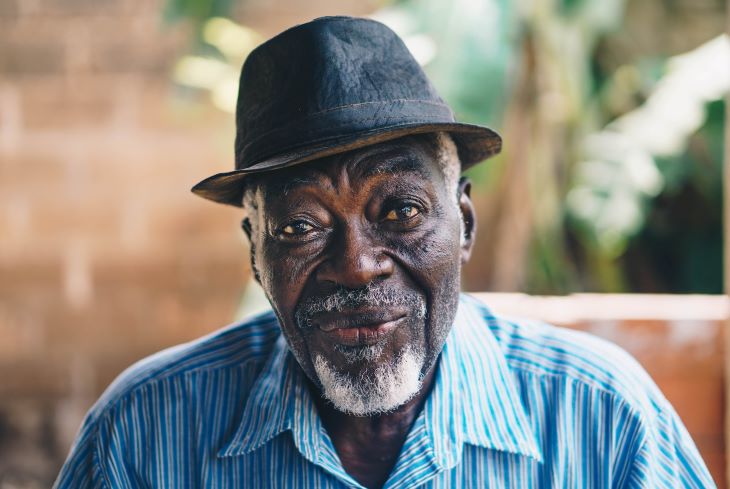Drug & Alcohol Rehab in Desborough
In order for drug and alcohol rehab in Desborough to be successful, it is important that you are ready to recover from your addiction.
Recognising that you have a problem with drug or alcohol addiction is an important first step towards recovery.
However, being ready to fully commit to and engage in the recovery process is crucial to achieving success.
Here are some signs that a person may be ready to recover from drug and alcohol addiction:
- You have accepted that you have a problem with addiction and are willing to seek help.
- You are tired of the negative consequences of addiction and want to make a change.
- You are willing to make significant changes to your lifestyle to support your recovery, such as ending relationships with people who use drugs or alcohol, avoiding places or situations that may trigger drug or alcohol use, and making time for regular therapy or support group meetings.
- You have a solid support system of friends, family members, or healthcare professionals who are willing to support your recovery.
- You are willing to take responsibility for your past actions and are committed to making amends for any harm you may have caused while using drugs or alcohol.
It’s important to remember that recovery is a journey and there may be setbacks along the way.
However, if you are truly committed to making a change, you can overcome addiction and achieve a healthy, fulfilling life in recovery and free from any harmful substances.
Withdrawal symptoms of drugs & alcohol addiction

Withdrawal symptoms are a common and often uncomfortable part of the process of quitting drugs or alcohol.
The specific symptoms that someone experiences will depend on the substance they are addicted to, the length and severity of their addiction, and other individual factors.
Some of the most common withdrawal symptoms associated with drug and alcohol addiction are:
Alcohol
Withdrawal from alcohol can cause a range of symptoms, including tremors, sweating, nausea, vomiting, anxiety, insomnia, seizures, delirium tremens and hallucinations (1).
Opioids
Withdrawal from opioids can cause symptoms such as muscle aches, chills, diarrhoea, nausea, vomiting, and sweating. In severe cases, it can also cause seizures or delirium tremens (2).
At Rehab Recovery, we offer free advice from a team of non-judgemental professionals, many of whom are in recovery and understand how hard it can be to change your relationship with addiction.
For more information about rehab in Desborough, simply reach out to our 24/7, confidential hotline on 0800 088 66 86.

Stimulants
Withdrawal from stimulants can cause symptoms such as fatigue, depression, anxiety, agitation, irritability, and insomnia.
Benzodiazepines
Withdrawal from benzodiazepines can cause symptoms such as tremors, anxiety, insomnia, seizures, and hallucinations (3).
Cannabis
Withdrawal from cannabis can cause symptoms such as irritability, anxiety, insomnia, loss of appetite, and restlessness (4).
It’s important to note that withdrawal symptoms can be severe, and in some cases, even life-threatening.
Seeking professional help from a healthcare provider or addiction specialist can help manage these symptoms and increase the chances of successful recovery.
If you have found that you struggle with any of the above withdrawal symptoms, it is recommended that you contact a member of our team as soon as possible and begin your journey to recovery in a facility that offers rehab.
Should I Pick a Drug and Alcohol Rehab in Desborough?

If you live in Desborough or the surrounding areas, completing rehab is recommended.
This is because you will likely feel more comfortable if you are in your local area and not too far away from home.
As well as this, you will be able to easily return to the clinic to avail of any aftercare services they provide such as outpatient appointments or group therapy.
At Rehab Recovery, we offer free advice from a team of non-judgemental professionals, many of whom are in recovery and understand how hard it can be to change your relationship with addiction.
For more information about rehab in Desborough, simply reach out to our 24/7, confidential hotline on 0800 088 66 86.
What Treatment Will I Complete?

Inpatient drug and alcohol rehab programs are designed to provide intensive treatment and support to people who are struggling with addiction.
These programs typically involve a variety of evidence-based treatments and therapies aimed at helping individuals overcome their addiction and achieve long-term recovery.
Some of the most common treatments you can expect from inpatient drug and alcohol rehab in Desborough are:
Medical Detoxification
Many inpatient programs begin with a medically supervised detoxification process to help individuals safely and comfortably withdraw from drugs or alcohol.
Individual counselling
Inpatient programs often include one-to-one counselling sessions with a licensed therapist, which can help individuals address underlying issues that may have contributed to their addiction and develop coping skills to manage triggers and cravings.
Group therapy

Inpatient programs also typically include group therapy sessions, which provide individuals with the opportunity to connect with others who are going through similar experiences, share their stories, and learn from each other.
Behavioural therapies
Evidence-based behavioural therapies, such as cognitive-behavioural therapy (CBT) or dialectical behaviour therapy (DBT), are often incorporated into inpatient programs to help individuals identify and change negative thought and behaviour patterns.
Holistic therapies
In addition to traditional therapy and counselling, many inpatient programs also offer holistic therapies, such as yoga, meditation, art therapy, or acupuncture, which can help individuals manage stress and promote overall well-being.
Facilities offering inpatient drug and alcohol rehab in Desborough offer programs that are designed to provide individuals with a comprehensive and personalised treatment plan to help them overcome addiction and achieve lasting recovery.
At Rehab Recovery, we offer free advice from a team of non-judgemental professionals, many of whom are in recovery and understand how hard it can be to change your relationship with addiction.
For more information, simply reach out to our 24/7, confidential hotline on 0800 088 66 86.
How Long Does Rehab Take?

The length of time someone spends in rehab will depend on several factors, including the severity of their addiction, the type of rehab program they are enrolled in, and their individual treatment needs.
In general, however, rehab programs can range from a few weeks to several months or even a year or more.
Some people are able to complete their time in drug and alcohol rehab in Desborough within 7 to 10 days.
This is only possible when the substance does not cause a physical addiction, so in cases of alcohol addiction or heroin addiction, you can expect to spend much longer in rehab.
In cases of severe and long-lasting addiction, and where a physical addiction also needs to be treated, it is recommended to spend at least 30 days in drug and alcohol rehab in Desborough, however, in some more severe cases, a stay of up to 90 days may be recommended.
It’s important to note that the length of time someone spends in rehab is just one factor in their recovery journey.
Achieving lasting recovery often requires ongoing support and continued commitment to sobriety.
What Can I Expect After Rehab?

Aftercare treatments are an important part of the recovery process and can help individuals maintain their sobriety and prevent relapse.
Some common aftercare treatments that you can expect when you leave drug and alcohol rehab in Desborough are:
Outpatient treatment
Outpatient treatment programs can provide continued support for individuals after completing inpatient rehab.
These programs typically involve several hours of therapy per week and can include individual and group counselling, as well as medication management.
12-Step programs
12-Step programs, such as Alcoholics Anonymous (AA) or Narcotics Anonymous (NA), can provide ongoing support for individuals in recovery.
These programs involve group meetings where individuals can connect with others in recovery, share their experiences, and receive support and guidance.
At Rehab Recovery, we offer free advice from a team of non-judgemental professionals, many of whom are in recovery and understand how hard it can be to change your relationship with addiction.
For more information, simply reach out to our 24/7, confidential hotline on 0800 088 66 86.
Individual counselling

Continuing to work with a licensed therapist in individual counselling sessions can help individuals maintain the progress they made in rehab and address ongoing challenges and concerns.
Family therapy
Family therapy can help individuals and their loved ones address and work through ongoing challenges and improve communication and relationships.
Aftercare treatments are designed to provide ongoing support and help individuals maintain the progress they made in rehab.
The specific treatments and approaches used will depend on the individual’s needs and goals for recovery.
How Much Does Rehab Cost in Desborough?

The cost of rehab can vary depending on a range of factors, including the type of treatment, the length of stay, and the level of care required.
Private drug and alcohol rehab in Desborough can cost between £500 and £10,000 per week depending on the program’s amenities and location. The more luxurious the facility, the more it will cost to stay there.
The National Health Service (NHS) offers free rehab programs, but availability may vary by region and waiting lists can be long.
Private outpatient rehab programs in the UK can cost between £1,000 and £2,500 per month, depending on the level of care required.
It’s important to note that the cost of drug and alcohol rehab is just one factor to consider when seeking treatment.
Many rehab programs offer financial assistance, and there may be options for insurance coverage or government-funded programs.
It’s important to research and compare different options to find a program that meets your needs and budget.
At Rehab Recovery, we offer free advice from a team of non-judgemental professionals, many of whom are in recovery and understand how hard it can be to change your relationship with addiction.
For more information, simply reach out to our 24/7, confidential hotline on 0800 088 66 86.
Get help today

If you are worried about your alcohol or substance use and feel that you would benefit from rehab or therapy to help you overcome your addiction, we are here to help.
Our team of dedicated addiction specialists are available 24 hours a day, 7 days a week.
At Rehab Recovery, we offer free advice from a team of non-judgemental professionals, many of whom are in recovery and understand how hard it can be to change your relationship with addiction.
For more information about rehab in Desborough, simply reach out to our 24/7, confidential hotline on 0800 088 66 86.

References
[1] National Library of Medicine – Introduction to Alcohol Withdrawal – https://www.ncbi.nlm.nih.gov/pmc/articles/PMC6761824/
[2] National Library of Medicine – Opioid Withdrawal – https://www.ncbi.nlm.nih.gov/books/NBK526012/
[3] National Library of Medicine – The benzodiazepine withdrawal syndrome – https://pubmed.ncbi.nlm.nih.gov/7841856/
[4] National Library of Medicine – Clinical Management of Cannabis withdrawal – https://www.ncbi.nlm.nih.gov/pmc/articles/PMC9110555/


